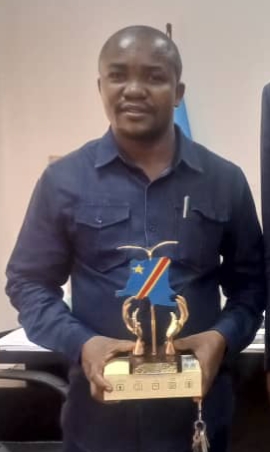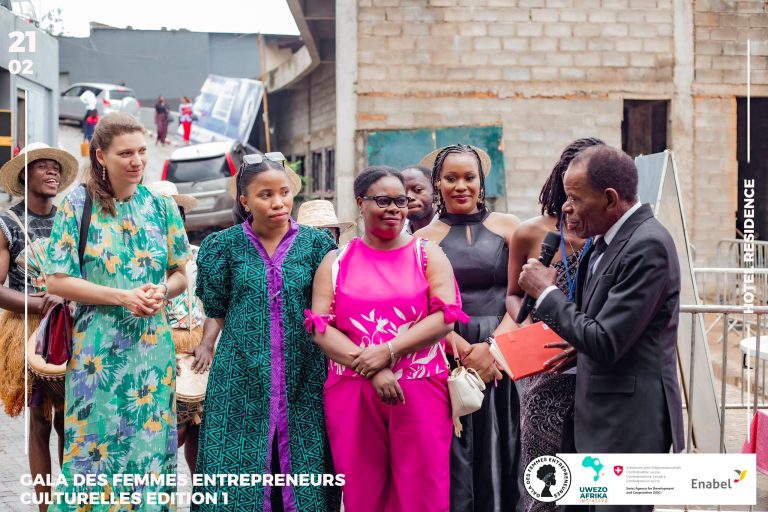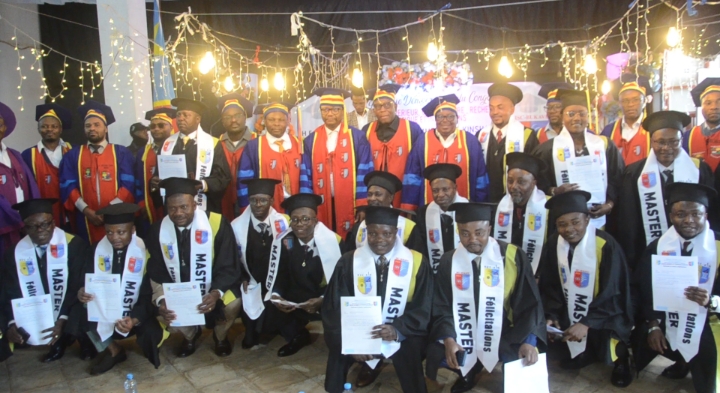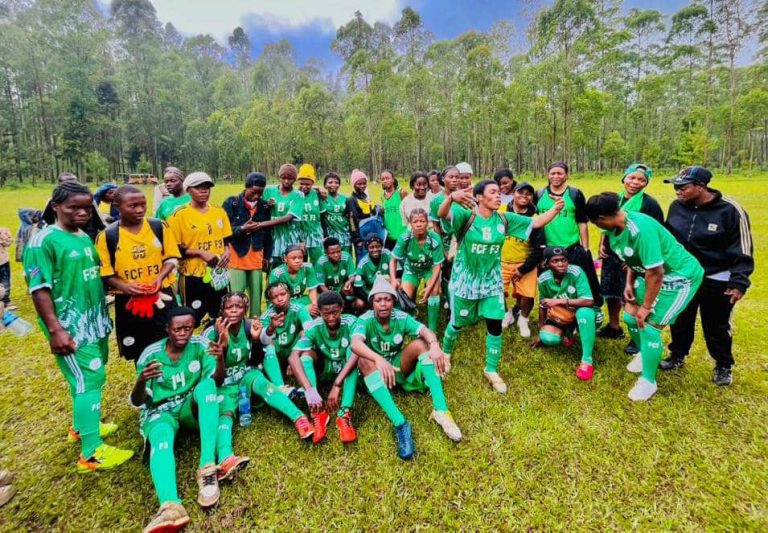
Bukavu, a cosmopolitan city built in the heights of the province of South Kivu is one of the entities of the East of the DRC bruised by conflicts and wars repeatedly.
Described as the world capital of rapes around 2016 for crimes committed in different territories of the province.
Villagers fell prey to belligerents, rural areas robbed, houses burned and entire villages sabotaged.
For fear of their lives, many have abandoned their homes to seek refuge in the city of Bukavu.
Social facts, in particular, the rural exodus is invited within the community.
As a result, the city was built for about six hundred thousand people today has more than two million inhabitants according to the latest statistics of the town hall.
Out of the frying pan into the fire.

Margaret Bikiyo had already lost everything before she moved to the city in …..(put the year when she moved to the city
Margaret Bikiyo had already lost everything before she moved to the city in 2012.
Millitia group Raia mutomboki, raided her village one morning in November 2011, killing all her family members. Saved alone she ran for refuge in Bukavu city.
Marguerite Bikiyo is doubly the direct victim of disasters.
Arrived in town in 2012, she lost everything after an attack by Raia Mutomboki in Kalehe.
And as misfortune never comes alone, the landslide drove the nail of its misfortune a few years later.
“ I came to the city. The commissionaire showed me a place called Gyamba. Unfortunately, it was on a mountain,” she narrated.
Marguerite’s house on the hillside did not last too long. In june 2022 it rained heavily and the house collapsed.
“ I lost four children and everything fell apart,” she said, adding that “Unfortunately, I rebuilt there because I have nothing to do, »
The family is disturbed, children have difficulty getting to school. From a somewhat stable and noble household with a small fortune, Marguerite Bikiyo manages by selling vegetables in the city of Bukavu but painfully.
Children stay at home yet from the beginning they were comfortable in life.
The situation is almost general in Bukavu. Already more than 11 sites unsuitable for construction are home to people from the territories.
The latter build onhills, slopes and mountains that house hundreds of households at the risk of the lives of the inhabitants.
However, the damage is enormous, the civil society consultation framework has recorded since the beginning of 2022, more than 5 landslides with more than 27 deaths, including 4 as of September 7 in Nyalukemba in the commune of Ibanda, 4 others among them a dozen children and more than 5 women on August 21 in the same neighborhood, the same commune.
» For us it is deplorable and even alarming to continue to count the deaths of people fleeing insecurity in different territories and coming to settle in the city. They build on forbidden sites and end up dying from landslides, erosions or collapses of the walls. The signals are red. We are at more than 20 dead, which is painful, « regrets Zozo Sakali president of the civil society consultation framework.
Overcrowded and oversaturated, the earth vomits. The soil takes revenge with the climatic effects and its threat by the inhabitants.
Josué Aruna, scientist, master in environment believes that it is the recovery of the soil that claims its place.
According to Josue, climate adversities like increased rainfall find the city of Bukavu vulnerable and only worsen what is already bad.
Bukavu, is now saturated but the urban ecosystem no longer has the carrying capacity to support the population of the city of Bukavu as the city was built coupled with anarchic constructions and soil degradation.
Disasters caused by humans.

Floods, fires, collapses of walls, people buried underground, natural disasters resulting from the harmful effects of humans.
Meschack Bilubi, both mayor of Bukavu and specialist in environment and sanitation, believes that these are natural disasters caused by humans.
« The disasters we are experiencing in Bukavu are disasters of a human nature, Disaster management requires what is called the disaster management cycle… These are vulnerable unsuitable sites, » explains Meschack.
Children have been orphaned entire families decimated, the residue of houses swept away by rushing winds and so many others, disasters leave traces in their passage.
That is why mechanisms are needed to address it.
Depletion of urban green space.

The city of Bukavu has been stripped bare by these arrivals, green spaces do not exist. Around the Higher Pedagogical Institute it was a bush, the same thing towards the Higher Institute of Rural Development ISDR or towards the Avenue de la Presse, there were only trees.
Currently, they are working-class, overcrowded and inhabited neighborhoods.
As more and more people pile into the already crowded city, there’s a scramble for urban space in which plants do not stand a chance. Due to deforestation and increase in paved surfaces, the water holding capacity of the soil is reduced leading to increased risk of flooding and destruction.
After years of haphazard development, death and destruction, not all hope is lost for the city of Bukavu. Civil society groups believe it is possible to regulate current and future developments in the city with a view to eliminate unplanned settlements going forward .
Planned urbanization.

After years of haphazard development, death and destruction, not all hope is lost for the city of Bukavu. Civil society groups believe it is possible to regulate current and future developments in the city with a view to eliminate unplanned settlements going forward.
Faced with this situation, the city of Bukavu must have an urbanization plan.
Its true value is in particular the traceability of the avenues on the one hand and the other by a good channeling of the water.
This urbanization should allow the reduction of the number of inhabitants in the city but also reduce the human pressure currently experienced in the city.
“ It is really unthinkable that until now in the 21st century we continue to record deaths because the services continueto sell unsuitable sites, » said Zozo Sakali, president of the civil society consultation framework.
Mobilise the populace, embark on greening.

Entrenching a new order will also require that the people are sensitised and mobilised to be a part of it, some work is already being done.
“ To the population, to no longer continue to build on these unsuitable sites but also to no longer continue to throw household waste into sewers and gutters to avoid the overflow of water. Beyond that, we participate in the restoration of certain landscapes, including reforestation, the planting of certain trees” explains Josué Aruna.
In the province of South Kivu, the authorized service is the civil protection. He is closely following this situation and like others, she has as a solution reforestation, the fight against construction at sites unsuitable for construction and goes a little far with the awareness of the inhabitants.
« We are now advocating three things, the first is that people leave these unsuitable sites for construction and that these sites be reforested. We would also like to see two or three trees in each plot, » advises coordinator of the civil protection office in the province.
On certain slopes, the ground slips and to succeed in mastering it, it is an obligation to plant trees. In other places like on the ITFM hill, the only solution is to plant the trees. The obligation that must apply around the Lycée Wima and so many other environments.
To this we will also need sanctions for those who allocate documents for those who build anarchically.
These include cadastral services, town planning and habitat and environment according to the law.
« As far as anarchic constructions are concerned, it is the public services of the State that grant the documents, that the authorities prohibit documents in these places, these sites unsuitable for construction, » adds Adolphe Bandeke.
Overcrowded, the city of Bukavu deserves to be relieved. And it is through the expansion of the city, a new subdivision but also the relocation of those who live in places unfit for construction.
Norbert Basengezi Katintima, a geographer by training and former governor of South Kivu province, is among those who give as a solution to these disasters the expansion of the city of Bukavu.
« Above all, think about lobbying for this city to be moved elsewhere and for it to be an old city like Lagos. That there should also be a disaster reduction committee. When this committee is there, people even think about the environment, people also think about the displacement of the population, » advises Norbert Basengezi Katintima.
The latest meetings in Murhesa 1 and 2 show that in South Kivu, there are more than 35 local armed groups. Added to this are foreign militias such as the FDLR, FNL, Imbonérakube who commit abuses in remote areas.
The management of such major issues also requires a policy put in place by the powers that be.
Implement the disaster contigency plan.

In this province located in the eastern part of the DRC, a contingency plan put in place thanks to the support of the United Nations Development Programme is in force but is being popularized.
Being equipped with strategies to absorb natural disasters such as fires, landslides, collapses of walls and many others.
« We are fighting for the popularization of the contingency plan that summarizes the major strategies for enlargement and subdivision. As is the case of Nyantende and the city of Kashusha, » explains Josué Aruna, coordinator of environmental civil society.
On the government’s table, the risk reduction platform is already planned and will be executed by then, officials said. Broad lines in particular
“ in the province, there is a provincial platform for disaster risk reduction, we went everywhere, the data we received allowed us to prepare arevitalization order » says Adolphe Bandeke.
And the mayor of Bukavu Meschack Bilubi to reveal a little the main orientations of this contingency plan.
The restoration of state authority
The reality is such that the rural exodus is caused by insecurity.
Residents come to seek help in the city despite its small capacity.
For many, the solution is the restoration of state authority and security in these corners of the province.
The latest meetings in Murhesa 1 and 2 show that in South Kivu, there are more than 35 local armed groups. Added to this are foreign militias such as the FDLR, FNL, Imbonérakube who commit abuses in remote areas.
« We ask for peace, give us peace. We want to go home, but we live in excessive insecurity, » said (not her real name) of a survivor of sexual.
As a result, the inhabitants live with fear in their stomachs. The solution is security. To achieve this, it is also better to move some provincial institutions to the territories.
The city itself by its activities attracts people. If you put the Ministry of Finance in Kamanyola, do you think people will not cross there to get signatures? The provincial assembly in Kabare and other institutions in other provinces. Do you think people won’t move? asks Norbert Basengezi Katintima.
In short, the establishment of security in rural areas is necessary to promote the return of populations at a time when housing estates are envisaged in the territories surrounding the city of Bukavu, with a view to preventing natural disasters often caused by anarchic constructions caused by the demographic pressure that the city of Bukavu has been facing for several years.




